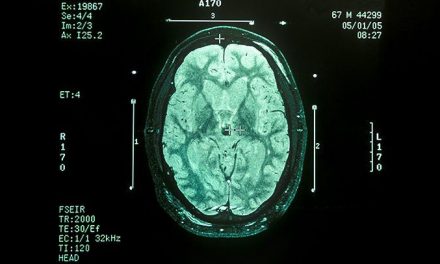A recent study indicates that a new computerized test could be a better tool in diagnosing dementia earlier than any conventional paper test. The digital exam reportedly checks how fast and accurate a patient sees animals in a set of photos.
The study was published in the scientific magazine Nature. It explained that the test could be utilized as an evaluation tool for a person’s cognitive skills. The visual processing exam, dubbed the Integrated Cognitive Assessment, was designed by Cognetivity, Inc.
The Limitations of Paper Tests
One of the exam’s creators, Dr. Sina Habibi, explained that the tests presently used to diagnose neurodegenerative disorders, like dementia and Alzheimer’s disease, is primarily based on the test taker’s education and language skills. Patients who don’t count English as their first language will probably not perform as well since the test is in another language. The study’s authors also emphasized that comprehensive paper-based exams are susceptible to “learning bias.” It means a patient can improve their score through practice; thus the test will not show the actual state of the brain function.
The most commonly used pen-and-paper tests today include Addenbrooke’s Cognitive Examination, the Mini-Mental State Examination, and the Montreal Cognitive Assessment. Designed by neurologist and McGill University professor Ziad Nasreddine, the latter gained massive media interest the previous year when American President Donald Trump allegedly aced it. The test consisted of a set of tasks that includes naming animals and drawing a clock.
Several computerized cognitive-screening evaluations have been developed as possible substitutes to make-up for the limitations of these traditional paper exams. Cognetivity’s Integrated Cognitive Assessment test is a likely replacement.
A Better Diagnostic Tool
Thomas Sawyer, Cognetivity’s CEO, said that their team hoped and believed, they developed was “a very useful tool which can make a significant difference.” He also pointed out that their test is easily administered and “free from a lot of the other troubles [associated with standard screening tests],” leading them to firmly believe that it’s a critical tool in getting that all-important early diagnosis.
The Integrated Cognitive Assessment exam requires the patient to look at several black-and-white pictures that flash on an iPad for about 100 milliseconds. Based on whether they see an animal in the photos, the patient would tap the right or left side of the screen.
According to the Nature report, the researchers conducted the test on 448 patients. The test results were later compared against several paper-based tests.
Doctors Sawyer and Habibi expounded that their exam revolves around research indicating that visual processing problems can be considered an early sign of dementia rather than a memory problem. It is because memory lapses are subjective and also arise later.
The test also has varying levels of difficulty. For instance, one photograph shows a bird in a bush while another has a giant bear in the center. The ease or difficulty a patient experiences in recognizing an animal means it can be utilized to detect early signs of cognitive issues.
Dr. Habibi, who is also Cognetivity’s chief executive, said that their test is designed to be part of a regular checkup. Depending on the patient’s scores, their doctor can either request that they retake the exam or refer them to a specialist to perform a more detailed evaluation, which could include an MRI.
Dr. Habibi also acknowledged that diagnosing diseases like Alzheimer’s and dementia is currently very challenging and expensive. But he hopes that by coming up with a way to make it easier to screen patients that might have dementia, the disorder can be diagnosed earlier and proper steps are taken.















